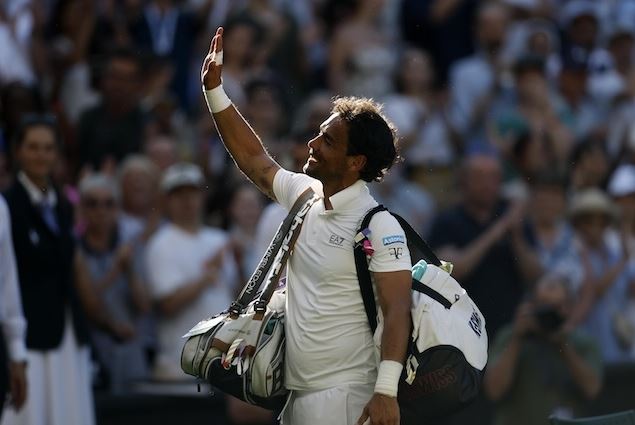There is a phrase by Fabio Fognini, in the press conference of farewell to tennis, who tells a high -level sport of a lapidary truth: “It is not easy, because I did this for twenty years and I can’t do anything else”.
You know, sport can become a job – that you become it is the ambition of those who begin it because as Enzo Ferrari said to Enzo Biagi, man wants to win -: if it is a sufficiently high ranking, it can also be a very profitable job (but for a few elected, for those who do not go up enough instead the circuit risks being a cost). For all those who manage to do a professional activity, however, it is notoriously a time work, with a short time. Everyone knows it, but generally postpon the time to deal with this awareness: You have been boys until your horizon are the lines of the field and it is a trauma to get out of it, it means growing up. A bit like it happens in one of the very happy sporting representations of the Argentine humorist Mordillo: beyond the lines of the field there is the ravine.
The feeling is that sport lives this awareness as a gigantic removal: it is known that there is a future beyond the sport to be built, but as long as there is a field in which to play, it is avoided even if you appear on the brink of the dark abyss that is beyond the white line: an early retirement at an age that for others is the means of the walk of our life, which we arrive, without the experiences that others have had the time to mature. And many times it is one without or with very little retirement: there is sport and sport, the nest egg is not always enough for life, and many times it is really for glory. Of course, the luggage of the high level is brought to life if there has been, of the mental challenge that is summit sport, but it is not immediate to translate it into real life.
If you are Roger Federer you can simply stay yourself, you risk a little veteran, but you can give yourself a very golden buen retiro to fill with the hobby of a solidarity foundation, If, on the other hand, you are not the first, but “only” the tenth, the twentieth, the fiftieth one has to invent a place in the world: not only a job, but a role, something that tells you in the mirror who you are.
Being twentieths, fifties, cents in the world in whatever work would already be the sum excellence, but unlike sport, the other works continue to do until the age of the pension. Sport instead one day closes you the gate that leads to the field and tells you that among the lines of the field that have defined you until then there is no more place for you, that you have in front of you, on average, at least 40 years from the white line in there and you have to invent something. To keep you, but also not to live a life of something from ex.
The feeling is that adults who grow young sportsmen (chasing their own glory and them) and sport as a system do not yet prepare this delicate step enough. Certainly he has not prepared him enough in the past and whoever comes out now often does it like Fognini with the feeling of not knowing anything else. With today’s twenties it seems that it goes better, at least more is studied.
But perhaps we should think more than this theme of the future beyond competitiveness in sport as a system. It may be functional at the high level of living eternally focused by not thinking that inside the lines of the field or, better, that it is considered such (it is not said that it is, if something goes wrong you go to the air as people).
But for those who invest everything in sport, when asked “and now, what will I do when I grow up?” That “I have not yet thought about it, I have projects”, which means everything and nothing, and which is the most popular response among the career athletes of every discipline (rich and poor) risks being a leap into the too large void, which humanly has a social price (and for some sports too economic) too high.


